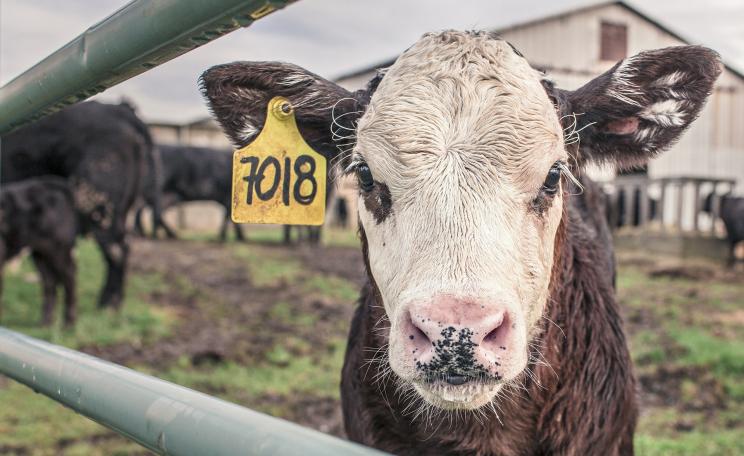Leaving the EU and nationalising the farming support system presents governments with a once-in-a-generation chance to radically transform the Common Agricultural Policy (CAP) into a British policy for higher animal welfare and sustainable land management.
Eight out of ten people support farm subsidies to improve animal welfare, according to a new report by the RSPCA.
The charity proposes that the new farm support system, due to come into effect from next year, should be targeted at farmers who want to improve welfare.
There is currently little or no financial support available for farms to lift their levels of animal welfare higher than the minimum legal standards which the RSPCA believes are just not good enough.
Rewarding farmers
According to the RSPCA, farm animals can legally be kept in barren, overcrowded and restricted spaces which can prevent or severely restrict their ability to carry out natural behaviours such as foraging, rooting or being active.
Laying hens can be kept in cramped cages, meat chickens without any natural light, a fully-slatted floor without any bedding is deemed acceptable for pigs and dairy cattle can be housed year round.
The new support system should reward farmers with public money only if they go beyond current standard industry practice on animal welfare say the animal welfare charity.
If the Government took up these proposals the RSPCA believes the UK would move towards world-leading welfare standards that deliver a genuinely competitive farming industry post-Brexit.
Public support
David Bowles, head of public affairs at the RSPCA, said: “This scheme would give farmers the financial leg-up they need towards much higher welfare production.
“Our proposals provide the practical details which governments are seeking to make their vision work. We have set out a highly workable two-tier proposal for farmers to be paid to invest in higher animal welfare standards while ensuring they are not undercut in any new trade deals.
“These proposals are based on the reality of available budgets and offer pragmatic, viable solutions to enforcement and comply with World Trade rules.
He added: “People in the UK care about how their food is produced and our recent survey shows a vast majority of the public (82%) want to see subsidies used to improve animal welfare.
“Targeted incentives for farmers who need help improving animal welfare would be good for producers, good for consumers and good for animals.”
Two tiered system
In February 2018, the government committed to safeguarding the welfare of livestock post Brexit and proposed pilot schemes for farmers to deliver higher welfare outcomes and substantially reduce endemic disease.
The RSPCA says its recommendations would help achieve the higher standards of farm animal welfare that the government wants as the UK leaves the EU.
Using a two tiered system, it proposes an initial ‘transitional payment’ tier whereby payments would be awarded to producers to build modern housing and improve animal health and welfare, as a first step towards meeting the higher ‘tier two’criteria.
It recommends tier two payments be awarded to producers that are members of a higher welfare farm assurance scheme, such as RSPCA Assured.
This would deliver higher standards of welfare covering the whole life of the animal and would be measured through welfare outcome assessments.
Fresh thinking
The RSPCA’s proposals are informed by current EU farm subsidy amounts given to improve animal welfare, and have been developed to meet World Trade Organisation rules.
The organisation believes both environmental and animal welfare benefits could be funded from the existing financial ‘envelope’.
Mr Bowles concluded: “Leaving the EU and nationalising the farming support system presents governments with a once-in-a-generation chance to radically transform the Common Agricultural Policy into a British policy for higher animal welfare and sustainable land management. But it needs fresh thinking.
“If we get it right now, the UK’s food quality could become the world’s gold standard - and that can only happen with an approach that continuously drives animal welfare.”
This Author
Catherine Harte is contributing editor of The Ecologist. This story is based on a news release from the RSPCA.







